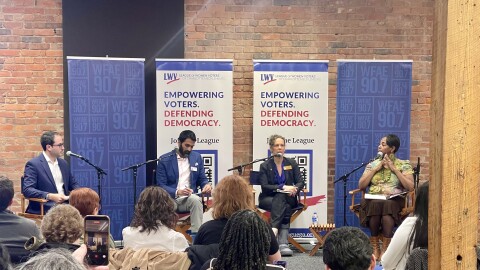$3.2 billion project aims to reduce congestion, but concerns mount over effect on neighborhoods.
MORE POLITICS NEWS
-
-
Michael Whatley’s path to winning the U.S. Senate race has always run through tearing down Democrat Roy Cooper.
-
The Energy Saver NC program was funded with $208 million from the Inflation Reduction Act. It is intended to help low- and moderate-income households slash utility bills.
-
-
In-person early voting begins on Thursday, Feb. 12, and ends on Feb. 28. The North Carolina State Board of Elections shared tips for voters ahead of the primary.
-
A federal judge refused Sunday to help in attempts to open early voting sites at three public North Carolina universities, declining requests to overrule decisions by Republican-controlled elections boards leading up to the state’s upcoming primary.
-
Legislators in Raleigh are grilling Mecklenburg County leaders on Monday about crime — especially the high-profile killing of Iryna Zarutska on the light rail — and their cooperation with federal immigration officials.
-
West Charlotte residents are furious that the N.C. Department of Transportation this week said it plans to build elevated express toll lanes on Interstate 77 through uptown, and some protesters shouted down a Charlotte City Council member during a town hall Thursday night.
-
Some voters need to update their information this week or risk having to cast a provisional ballot.
-
Election officials have disqualified Republican Margot Dupre from the GOP primary for North Carolina’s open U.S. Senate seat, finding she failed to prove she is a North Carolina resident.













